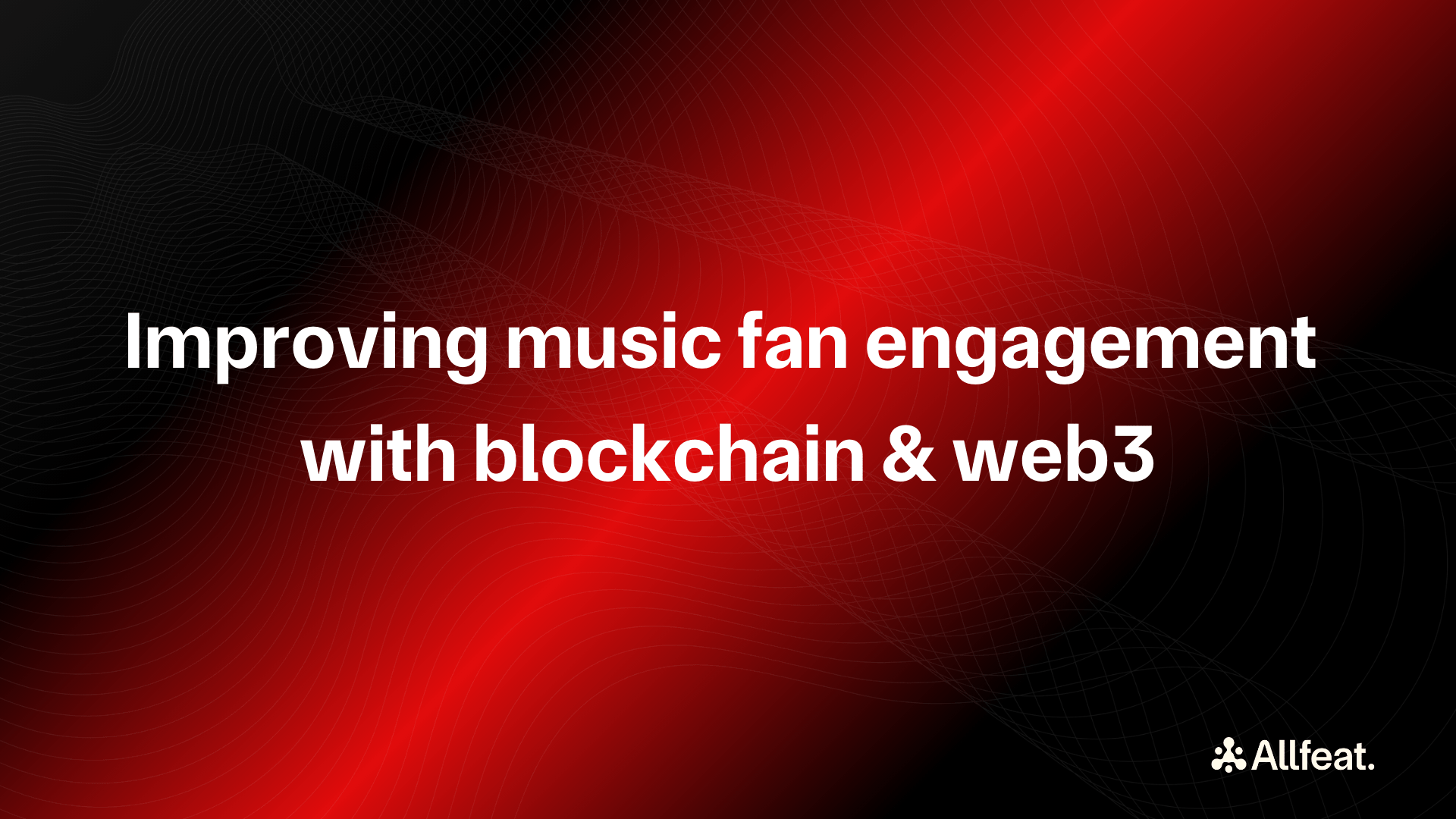Improving music fan engagement with blockchain & web3
Improving music fan engagement with blockchain & web3

The digital age has made it easier than ever for artists to create, produce, and distribute their music globally.
Yet, artists are still struggling to find the right listeners among the vast global online audience and are lacking tools to better engage with their fanbase.
Traditional platforms often limit fan involvement to likes, shares, and comments, leaving a vast potential for deeper engagement untapped. Blockchain technology can offer opportunities for better engagement by offering transparent, secure, and innovative ways for artists to connect with their audience. Discover how blockchain can address these challenges, creating a more interactive and inclusive music ecosystem.
Fan engagement & Rewards
Fan engagement is essential to the success of artists. Thanks to blockchain, fans can now be rewarded with digital assets (token, NFTs…) for their loyalty and support.
Whether it's sharing music, listening to tracks, taking part in events or directly supporting artists, every interaction can be rewarded. These tokens can then be exchanged for exclusive content, private events or merchandise. This reward system strengthens the bond between artist and fan, creating a more engaged and loyal community.
For example, artists can create campaigns encouraging fans to share their new single, with tokens or exclusive content offered as rewards. Artists can also implement a leaderboard to recognize and reward the most active fans over a given period. By earning tokens, fans can unlock exclusive content, gain access to special events, or even influence artistic decisions, fostering a deeper and more meaningful relationship within the music community.
Virtual & interactive events:
Organizing concerts is key for artists as it provides a way to connect with their existing audience, build a loyal fan base, and generate revenue through ticket sales and merchandise. However, the costs of touring, limited engagement, venue capacity, and location limitations make it challenging for smaller artists to target the right audience in the right place.
The organization of virtual events, where access and interactions are managed through tokens on the blockchain, opens up the possibility for immersive and unique experiences for fans around the world. This method not only ensures secure and transparent event management but also elevates the fan experience by offering exclusive and engaging opportunities.
For example, the metaverse offers an engaging approach where fans and artists gather online globally and are able to interact with one another as if they were attending a physical concert. This opens up many opportunities to create digital yet interactive experiences where fans feel close to their favorite artist. In addition, artists are able to sell digital merchandise in the metaverse, and fans can upgrade their avatars to showcase their fandom.
Music Creation & Collaboration
Decentralized platforms facilitate real-time musical collaboration among artists from around the world. Thanks to blockchain technology, artists can work together transparently and securely, sharing ideas and resources instantly. This global collaboration enhances productivity and innovation, enabling the creation of unique and diverse musical works. Artists can thus break down geographical and cultural barriers to produce music that resonates on a global scale.
Fan Governance :
Decentralized Governance is another major innovation possible through the use of blockchain technology.
Through governance tokens, fans can participate in important decisions regarding their favorite artists' musical projects, thereby strengthening the community and enhancing engagement. This inclusive approach empowers fans to have a direct influence on the creative process, fostering a deeper sense of connection and loyalty.
For example, fans might vote on the artwork for an upcoming album, choose the setlist for a live performance, or even help select the next single to be released. By involving fans in these decisions, artists can create a more collaborative and invested fan base, leading to a more vibrant and supportive community.
Conclusion:
Blockchain isn't just about security and transparency; it's also redefining fan engagement, music creation and governance in the music industry.
By rewarding fans with tokens for their engagement and loyalty, artists can build a more dedicated and active fan base. Virtual events managed through blockchain tokens provide immersive and unique experiences, breaking down geographical barriers and enhancing fan interaction. Decentralized platforms encourage global collaboration and creativity, drawing in new audiences through transparent and accessible artistic processes. Moreover, governance tokens give fans a say in important decisions, strengthening the community and deepening engagement. Whether it's voting on album artwork, choosing setlists, or influencing release strategies, blockchain creates a more inclusive and interactive music ecosystem.
As artists adopt these innovative tools, they not only consolidate their creative efforts but also encourage a more invested and supportive fan community, paving the way for a future where the bond between artists and fans is stronger than ever.
